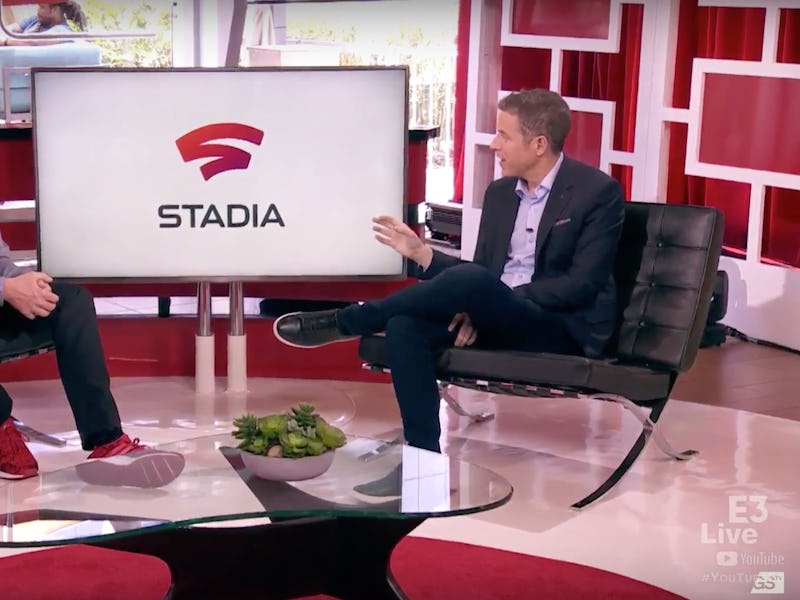Google Stadia Chief Reveals New Pricing Information for Cloud Gaming Service at E3
Gamers will have even more choices.

Google chose to skip out on E3 2019 and instead host its own announcement for its cloud gaming service, Stadia. But that didn’t keep Stadia chief Phil Harrison from stopping by for a live interview at E3 where he revealed more information about how gamers will pay for titles on the platform.
On June 6, Google unveiled that Stadia will launch in November with an initial roster of more than 30 games and three payment options. Access to the platform will be free in 2020 and games will be available for purchase a la carte or for a $9.99-per-month “Stadia Pro” subscription gamers will have access to the full, rotating roster. But Harrison told games journalist Geoff Keighley that users will also be able to directly support their favorite game publishers on Stadia.
“You’ll see publishers starting to think about their own subscriptions as well. We support that on our platform,” he said. “You’ll see some announcements in due course around that. I don’t think that it will be for every publisher, but I think for some of the publishers who have the bigger catalogues and line ups.”
Gamers will be able to subscribe to individual publishers on top of these two payement options.
So Stadia will eventually work a lot like buying a cable subscription and then purchasing access to channels like HBO or Starz. This might be especially beneficial for gamers that are diehard fans of specific studios, like Rockstar and Ubisoft, or any of the other 18 Stadia partners.
Each game publisher will likely set its own subscription price, which would then give gamers access to releases immediately after they drop. Since Google Stadia will do away with having to wait for games to download, gamers will be able to jump in and start playing new titles immediately. No waiting in line at the game store or staring at a download bar for hours.
Aside from instantly gratifying gamers with new releases, this publisher subscription model could help studios create better games than ever. There was early criticism that a subscription-only model will make story-driven, single-player games, like Red Dead Redemption 2 and The Last of Us too difficult to monetize, blunting developer ambition and setting off an industry-wide race to the bottom. But with individual publisher subscriptions, studios have direct access to their fans for support.
Gamers will also get discounts on a la carte games, said Harrison. So even if users don’t want to commit to subscribing to publishers it’ll be cheaper to buy access to games on Stadia then purchasing a digital or physical copies.
“[With] Stadia Pro subscribers, we will do our best to get great value,” said Harrison. “And you see this with other gaming platforms that have promotions and discounts that come from time to time.”
Stadia seems set to give gamers more a plethora of voices to play the titles they love.